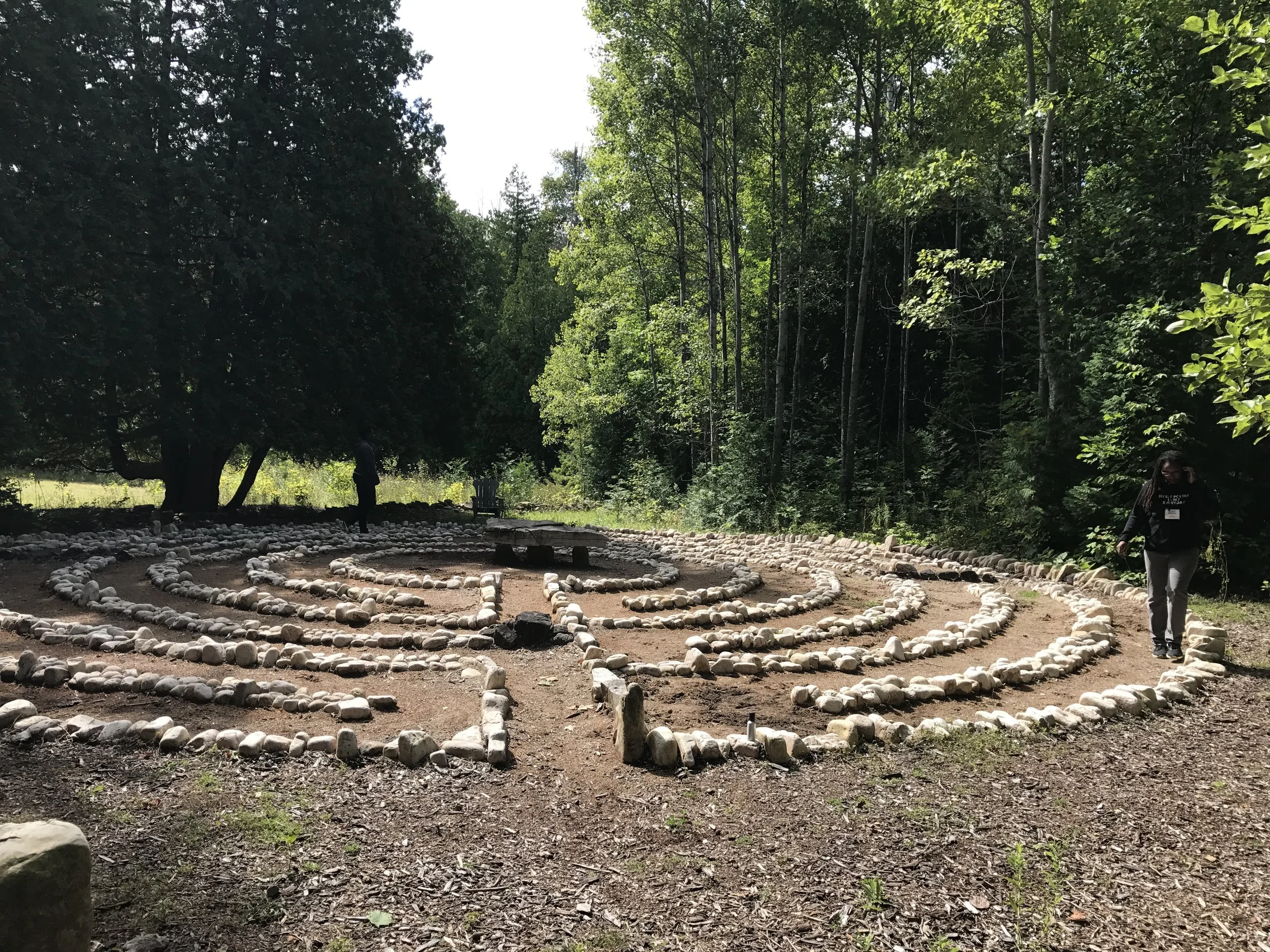In divination work, we step out of time, or rather out of our common conceptions of it, in order to know ourselves, and by extension the universe or the unity consciousness, in a different way. Accepting that time is a construct we use to move through this world, in the same way that we use names for things and numbers for things in order to order our experience, we in the act of divination dip into the infinite moment and emerge with new understandings.
This is why the method of divination is only relevant in as much as it serves the person engaging in the act. Tarot cards, pendulum, scrying, tea leaves, palm reading -- these are simply practices, rituals, tools we use to step out of our regular conceptions of space-time.
We can know time as not linear (moving from past to present to future), but simultaneous and without boundary, and still acknowledge that our human experience in this world is shaped by memory, the present moment/experience, and anticipated future.
So what divination allows us to do is tune into the knowing of ourselves as absolutely without separation from the fabric of the universe, and in that tuned-in state access information about the past-present-future of the person with us in the divination.
Because in this state we know the past-present-future as the same thing, a common and boundaryless experience, we can know the person with us in the divination and their experiences in a way we could not under normal, boundaried circumstances.
Of course even in the act of divination we are limited by so many things -- language foremost among them, which only permits transmission of information in boundaried terms, but the power of divination lies in its source: the simultaneous and boundless moment, the seamless universe from which we only seem to be distinct.
To me, this is why divination of the predictive sort -- will the person find someone to love, get a new job, etc -- is both less authentic and less ultimately useful than what I think of as clarifying divination. In predictive divination, we are asking to know what will happen in the future, which is basically pointless if we believe in either free will or the actual boundarylessness of time.
In clarifying divination, we are not asking what will happen, but what is happening. Why does that matter, you might ask. Who among us doesn’t know what’s happening? This question has two answers. One has to do with the infinite Now: if we understand that past-present-future are actually the same, that the only moment is the infinite present, the question of what is happening becomes the only question to ask. Asking what happened or what will happen is pointless, because those are the same thing as what is happening.
The other answer doesn’t require that comprehension at all, and might be more readily understood. If we understand that our lives are not set on fixed tracks, with a predestined set of experiences lined up for us at birth -- if we believe that we can make changes and decisions that impact the directions and experiences of our lives -- then knowing what is ahead of us based on our condition at any given moment is of limited use.
What then is of use? In my opinion, what is of use is information about the present/infinite moment that can serve as a touchstone for the choices and decisions, major and minor, that make up our everyday existence in this world.
For example, if I tell you that you will meet a tall, handsome stranger in the near future, that might be exciting, but is of limited use. Even if I tell you that this stranger is bad news and the cards are signalling not to engage with him, any number of actions on your part may prevent you from ever meeting this person who at this exact moment you are on track to meet and be drawn to despite his being bad news.
However, what if we step into the infinite and unified consciousness and learn that what is happening is that you are drawn to dramatic, high risk situations as a way of focusing your attention on other people and tasks instead of on your own growth?
If we come to know this, then as you go through your days making decisions and choices, you can ask yourself which choice moves you closer to an understanding and pursuit of your own growth, and which moves you further away from that. In that case, you’re less likely to steer clear of the dangerous handsome stranger only to take on an overly demanding job or buy a decrepit mansion to renovate as distraction.
In this way, divination moves out of the realm of “fortune-telling” and into the arena of self-knowledge, equipping us with information, tools, and insight we might otherwise never access.
